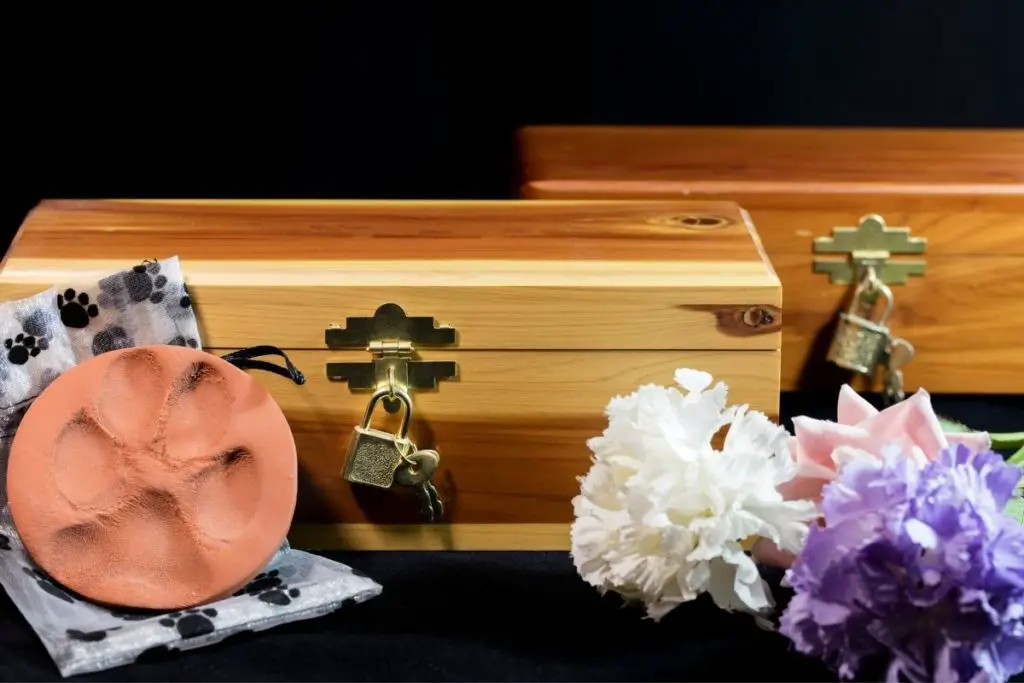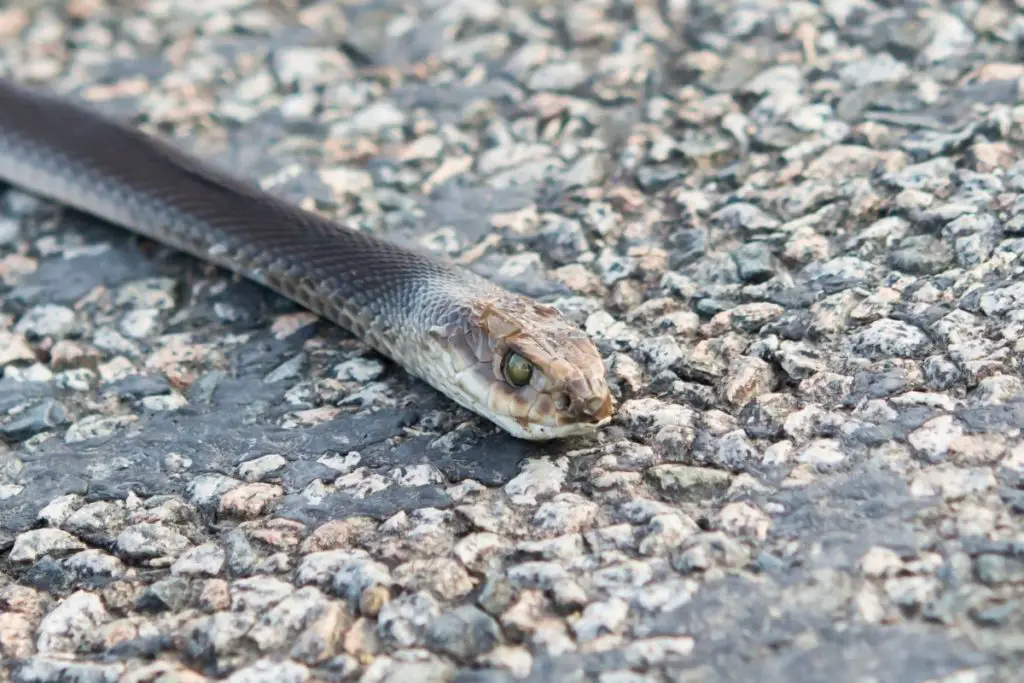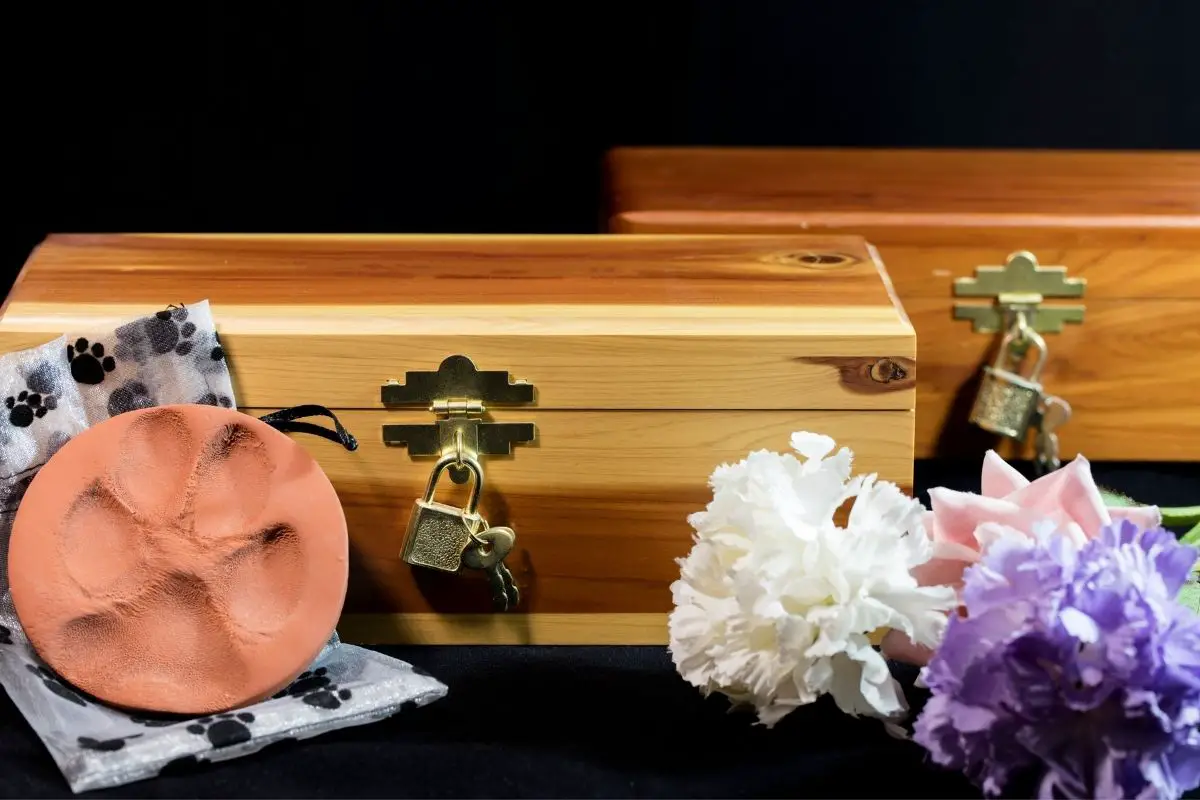Losing a pet is a hear-breaking life event, and it’s one that almost all pet owners will have to go through. Unfortunately, you usually can’t grief your pet right after their death because you have to start making arrangements for what to do with their body.
As hard as it is, you will need to get to work. Don’t worry, though, I’ve made this guide to help you get through it, so let’s start with the most important question.
How do I dispose of a dead snake? You can dispose of your dead pet snake by burying it yourself or asking your vet to bury it, or you can get your pet cremated. If you want to dispose of a dead wild snake in your house, you should call an exterminator or animal control as can remain conscious and will bite for hours after its death.
In this article, I’m going to discuss in detail each of your options and help you decide which one to go through and how to go through it, so keep reading as I answer all of your questions and then a few more…
Contents
How to dispose of a dead snake?

It may be difficult and distressing to consider how to get rid of your snake. As they live for a long time and need a lot of attention, it’s only natural to become close to them as time passes by, and studies have shown that the loss of a pet is really comparable to the loss of a loved one.
It is never a bad idea to consider ahead of time and prepare for when and where you will bury your own body, since the prospect of what to do with it after death is distressing.
There are basically three main options for what to do, which are:
Bury it yourself
Burial in one’s own yard is perhaps the most frequent technique of snake disposal among snake owners. If you bury your snake, be sure to check with your local authorities to ensure that you have permission. Some local authorities ban this, so get it confirmed ahead of time or risk fines/legal action.
If you own the land, have obtained permission from the property owner/authorities, and so on, burying your snake is one of the finest methods to say goodbye. You might even hold your own funeral service.
If you decide to bury your snake yourself, purchase a non-biodegradable coffin. This will keep scavengers and other animals from digging up your snake for a meal. Dead snakes and other dead creatures exude strong scents and odors that may be detected by neighboring animals.
If you live in a region that experiences extremely cold weather, you must also make sure that your casket is well protected. You’ll need to dig a considerable hole and put your coffin deep within it. The erosion of the soil over time may lead to the exposure of your casket if you don’t position it firmly enough.
Ask your vet or a cemetery to bury it
If you don’t have clearance, the space, or simply don’t want to bury your pet yourself, you may contact a pet cemetery. They will be able to bury your snake.
If you can’t locate a pet cemetery close to you, contact your veterinarian, who will assist you with snake burial services. This is certainly a more expensive option to consider.
You can expect to pay at least $100 for your vet to handle burying your snake, but the price will increase the larger the snake is as they will require more space and a larger basket.
Cremation
If you are thinking about cremation, your local veterinarian should be a valuable source of information. Many veterinarians may even offer this service for you.
Cremations are often communal, and you won’t receive the ashes of your pet if they’re cremated alongside others. While it’s cost-effective and requires less effort, seeing them leave without anything to remember them is a bit sad.
Alternatively, you may select a private cremation, in which case you’ll receive the ashes back. The cost will differ depending on the size of your snake if you pick this option.
One more way to dispose of your dead snake
There are a few more natural choices to consider. Composting the corpse of your snake is the most popular option.
Although this may come across as unkind, it is actually a very environmentally-wise way to say goodbye, which is something your snake would have probably appreciated if it could understand its significance to the planet’s health.
This YouTube video shows why.
If this is the case, then you’ll need to plan your compost heap carefully, and make sure your snake is firmly planted inside.
What to do when your pet snake dies?
The first thing you should think about before you decide that your snake is dead is to actually investigate whether your snake is ACTUALLY DEAD!
This may sound weird, but it is not. It’s quite easy for us to tell if our cat or dog has died, but it is not for snakes or reptiles in general.
Snakes, on average, live for 15 to 30 years. Snakes can survive for a few weeks without nutrition and can conserve energy much better than most other living beings.
This is why snakes are a very long-term commitment, and if you get a pet snake, you should know that it’s a life-long commitment really, which also makes it heart-breaking when you find them dead. Speaking of, let’s discuss how you can make sure that your snake really is dead.
How to know your snake is really dead?
A sleeping snake will react with surprise if you touch or pick it up. Try this with a snoozing snake to see how it normally reacts. It’ll lift its head and try to figure out what’s going on as soon as you touch it.
A dead snake will not react. It won’t react even if you pick it up. Instead of moving and scanning, it’ll hang limply in your hands.
It won’t try to wrap around your hand for balance if it’s a constrictor. It’ll be icy cold, although this isn’t unusual once it starts warming up in the tank’s basking area.
Do snakes act dead?

Some snakes, on the other hand, may be quite dramatic and play dead.
Snakes that are more prone to this type of behavior include some species of vipers and pythons. They do so as a defensive mechanism, particularly if they feel threatened. It might be followed by the release of an offensive stench to repel predators.
Snakes play the game of death well. As the snake’s owner, you really should do your research ahead of time and find out if the snake species you have chosen does this behavior or not.
Examine the circumstance in order to discover whether this is a habit they may follow and understand how a typical sequence of events unfolds.
You should also keep an eye on and watch them, as well as their own quirky methods. If your snake is adept at playing dead, it will generally be resurrected within a few minutes or once they believe the danger has passed.
Is it dead or hibernating?
Snakes are cold-blooded reptiles, meaning they can’t generate their own heat, and they have troubles hibernating in the way most animals do, but they do something else called brumating, which is like the lite version of it.
Snakes are ectothermic animals, which means that they have trouble controlling their body temperature. They do not hibernate for months as many other animals do.
If your snake is startled during sleep, they will simply look around to make sure no predators or threats exist before they go back into sleep or brumation.
Many snakes also don’t go into brumation at all if they don’t live in cold regions.
How to know your snake is dying?
As with any animal, there are some signs that signal that your snake is getting close to the end of its life, unfortunately, as with anything with reptiles, it’s more difficult to read these signs even if you know what to look for.
Knowing the signs of a dying snake can help you prepare for its passing – both physically and emotionally. If you take your pet snake for regular vet checks, they are also going to be able to see these signs early on and notify you of them.
Here are the signs that your snake could be dying:
- Their behavior change and they don’t follow their sleeping, eating, and hiding routines
- They will eat and drink significantly less than they normally do.
- They will not be able to shed their skin as easily or quickly as they usually do
- You will notice it getting smaller and losing weight
- Their poop will become bloody or runny
- As they get closer to the end, they will start to discharge liquids from the mouth or nose.
If you notice any of these signs, you need to call your vet and make an appointment as soon as possible.
Conclusion
If your snake is exhibiting any of the signs mentioned above, it’s best to consult with your veterinarian. They will be able to provide you with the appropriate level of care for your snake during their last days or weeks. It’s important not to panic and remember that euthanasia is always an option if you feel that your snake is suffering.
If your snake does end up leaving this world, the best way and the most emotionally-satisfying way to say good bye to them would be by making a funeral for them and burying them yourself, but sometimes you just are not able to do that, and in this case, you still have the option to ask your vet to do it or to cremate them.
We wish you the strength to go through these difficult times.
If you like this article, please share it!


